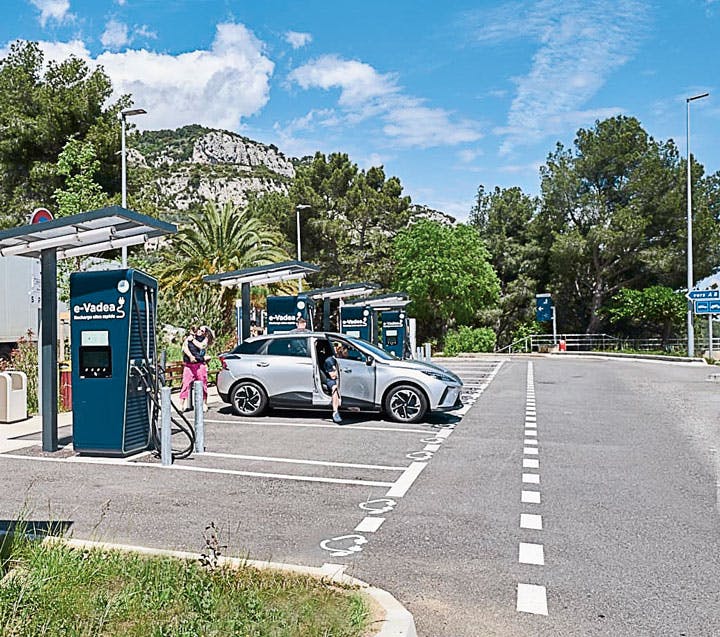Successfully bringing about decarbonisation
The concession model offers a robust and proven solution to help local and national governments unlock the “wall of investment” that they need to successfully bring about the environmental transition, particularly when it comes to transforming mobility. By combining the energy transition with economic performance, VINCI Concessions applies the public-private partnership model to producing, storing and supplying decarbonised energy – particularly photovoltaics through its subsidiary, SunMind, with a portfolio of projects totalling over 1.2 GWp in development. Structures sometimes use this renewable energy directly to reduce their own emissions, but it can also benefit regions. Energy produced by the future solar plant at Lyon-Saint Exupéry airport, for example – which will be operated by SunMind in partnership with Neoen – will be injected into the grid to power local towns, avoiding the emission of almost 1,600 tonnes of CO2 per year.
Supporting electric mobility
VINCI Concessions is also helping to decarbonise mobility by deploying charging stations for electric vehicles. In its European Green Deal, the European Commission estimated that the number of charge points accessible to the public should rise from the figure of 200,000 in 2020 to at least 1 million by 2025. In 2023, the German Federal Ministry for Digital and Transport Affairs awarded VINCI Concessions with three works packages for the Deutschlandnetz Regional, a programme to develop ultra-fast charge points throughout Germany. And in 2024, VINCI Concessions secured full green finance for the project to deploy 106 ultra-fast charging stations(1) – i.e., 828 charge points – in 12 of Germany’s 16 states. Meanwhile, in France, transforming highways into low-carbon infrastructure – by way of electric mobility – is already a reality, with a total of more than 2,100 charge points operational on the VINCI Autoroutes network in late 2024, 75% of which provide high-power charging, enabling a full charge in around 30 minutes. The number of charging sessions carried out in the VINCI Autoroutes network doubled between January and December 2024, with almost 2 million sessions over that period.
(1) With a nominal capacity of 400 kW, the highest current standard for high-power charge points.

INVESTMENT TO DECARBONISE HIGHWAYS IN FRANCE
VINCI Autoroutes worked with Patrice Geoffron, professor of economics at Paris- Dauphine-PSL University, to model the investment needed to incorporate highways into the national and European pathways to reach carbon neutrality by 2050. According to the study, carried out in 2023 and updated in 2024, the figure comes to around €70 billion for the entire French highway network. An initial tranche of priority investment, valued at around €15-20 billion for the entire highway network, would unlock tangible results from the next decade. These major investments should be compared to the significant savings that they would enable in terms of CO2 emissions and oil imports, and could be brought about through the concession model.
